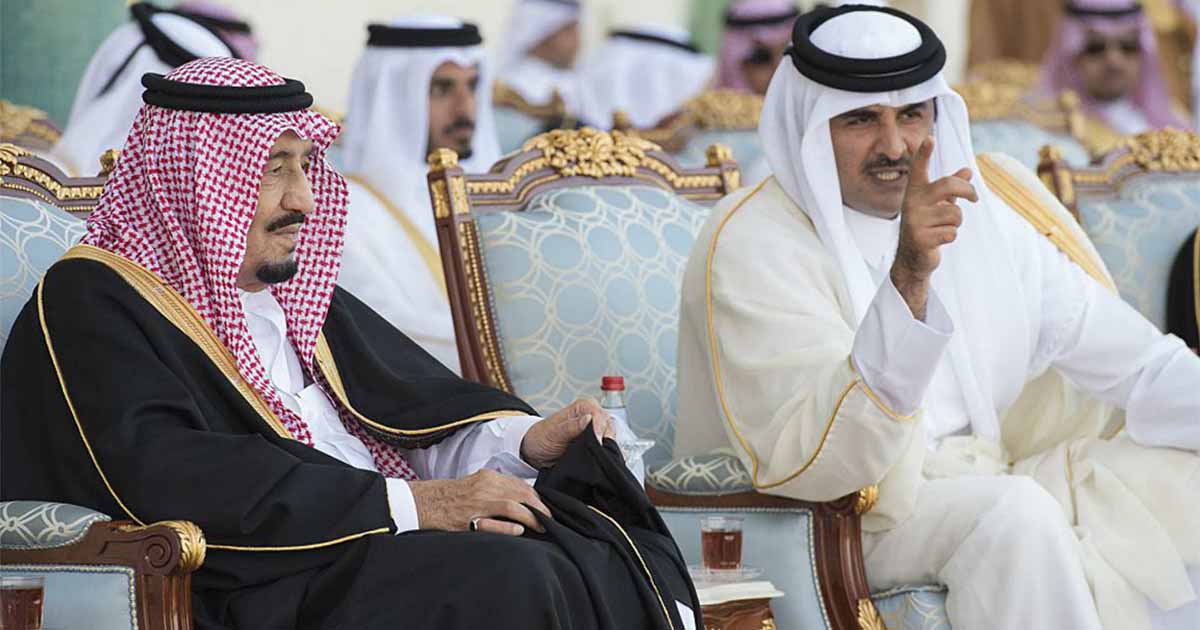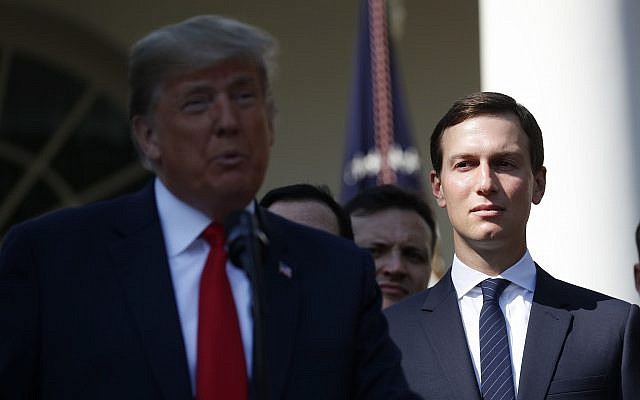News Desk |
Qatar, which had been under a Saudi-led blockade since 2017, had previously been barred from attending the emergency summits in Mecca. Last week, however, King Salman of the Kingdom of Saudi Arabia personally invited the Emir of Qatar, Sheikh Tamim bin Hamad al-Thani, according to top officials of Qatar’s Foreign Ministry.
However, Foreign Ministry’s spokeswoman, Lolwah Al-Khater, in a tweet on Wednesday confirmed that the Prime Minister Sheikh Abdullah bin Nasser Al Thani would attend the summits amid regional tensions that required Qatar’s “national and humanitarian duty to achieve collective security”.
Is the blockade on Qatar nearing its end?
Saudi-led alliance in June 2017 including, Saudi Arabia, Egypt, the United Arab Emirates (UAE) and Bahrain imposed a three-legged blockade on the tiny Gulf state. The ban had said to be the implications of Qatar’s support to the Muslim Brotherhood considered to be a terrorist group by the Saudi-led alliance, and because of Qatar’s stable alliance with Iran that mainly irked Saudi Arabia.
Qatar, which had been under a Saudi-led blockade since 2017, had previously been barred from attending the emergency summits in Mecca.
Qatar had firmly denied any support to terrorism in various official statements; the blockade, however, remained intact for two years until King Salman of Saudi Arabia invited Qatari Emir, Al-Thani, to attend the emergency summits in Mecca. While it is natural for Doha to feel overwhelmed by this direct call, it is still taking diplomatic steps to respond to this invitation.
Firstly, Prime Minister’s attendance in Mecca instead of the Qatari Emir signifies Qatar’s willingness to resolve the Gulf feud but at the same time it seems to be showing restraint in fully reconciling with the Saudi-led alliance as of yet. However, Qatar cannot rule out the entire possibility of reconciliation as it greatly benefits Qatar’s economy.
Read more: Saudia seeks to isolate Iran, Mecca summit to discuss Iran’s intervention
In fact, Qatar’s representation in Mecca can be possibly seen as a Confidence Building Measure (CBM) that may eventually result in the lifting of the blockade. As Qatar continues to autonomously grow its economy based on its vast natural gas resources (that led to its OPEC membership withdrawal in 2018), an economy based on its efficient foreign investment measures, and its fast-growing transportation and tourism industry, it is contentious to assume that Qatar’s reliance on the Saudi-led gulf alliance is its only option to survive.
Since the economic blockade in 2017, Qatar has drastically improved its economic game and was ranked 10th on the global Competitive Economies this Monday with one of the highest GDP per capita in the world. Qatar, earlier this month had compensated the United Arab Emirates with additional liquefied natural gas (LNG) supply, as a result of a major power outage on the Dolphin gas pipeline that supplied LNG to the UAE from Qatar which implies that Qatar is also interested in a strict bargain alliance with the quartets.
While it is natural for Doha to feel overwhelmed by this direct call, it is still taking diplomatic steps to respond to this invitation.
With regards to the diplomatic boycott since 2017, the arrival of Qatar’s PM Sheikh Abdullah on the national carrier, Qatar Airways at the Jeddah Airport, transcending the Saudi airspace that it had been previously barred from entering, signifies another possibility of rapprochement. However, no official statement about the lift of airspace ban has yet been issued by the Saudi-led Gulf alliance. However, this does not undermine Qatar’s diplomatic significance in the region.
Qatar’s visit to Iran, earlier this month, according to reliable sources of Al-Jazeera to head off Iran-US tensions post US withdrawal from the 2015 Iranian Nuclear deal tells a lot about the US trust on Qatar to play the role of a mediator. Moreover, Qatar being the only supporter of an Iranian Nuclear Deal in the Gulf region reflects its unprecedented support to the economic development of Iran which has been a bone of contention between Saudi Arabia and Qatar.
Read more: Saudi King invites Qatar for the first time since blockade
Other than, the friendly intentions, Qatar wants to ensure and diplomatically engage Iran in order to curtail any further attacks on the gas and oil installation in the Persian Gulf as it greatly impacts the economy of Qatar. Saudi Arabia and allies had accused Iran of backing/funding the support to the Houthi rebels of Yemen for an attack on Saudi installations twice on the 13th and 16th of May. Although Iran has repeatedly denied its involvement in the attacks.
What could be Qatar’s potential role in all of this?
An undeniable fact about Qatar is its humanitarian role in the Gulf and Arab League. It has sent a record amount of humanitarian assistance to Gaza and Syria and so its role as a diplomatic humanitarian leader cannot be undermined. Qatar is expected to be present at the summit being held at Bahrain (another blockade ally) for the future of the Palestinian economy in June.
Qatar Airways at the Jeddah Airport, transcending the Saudi airspace that it had been previously barred from entering, signifies another possibility of rapprochement.
Also known as the “deal of the century”, formulated by Jared Kushner, son-in-law of US President Donald J. Trump, to negotiate a peace process based on the economy. Therefore, it is expected that Qatar is likely to urge for stability and reconciliation for the betterment of the region as a whole while staying neutral on its personal biases.
Moreover, it is highly anticipated that the Iranian Deputy Foreign Minister, Seyed Abbas Araghchi, will hold a counter-meeting with its allies in the Gulf including Qatar, Oman, and Kuwait to insist upon Iran’s peace rhetoric.
Read more: Riyadh summit to discuss US-Iran tension
Despite all these diplomatic and economic leadership roles that Qatar has continued to play, it is imperative to humanize Qatar’s position in case of the Saudi-led blockade that the Qatari foreign minister, Mohammed bin Abdulrahman Al Thani, described as a betrayal stating, “the stabbing of the Qatari people in a premeditated crime of piracy, fabrication, and lies in which the appellant justified its unjust blockade against a country and its people”. Hence the reconciliation that will end the two year long economic and political blockade on Qatar is likely to take its due time.














